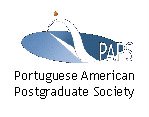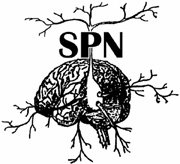Wednesday, January 09, 2008
Lisbon Neuroscience Meeting
Instituto de Medicina Molecular, Av. Prof. Egas Moniz, Lisboa
- Modulation of neuronal communication at the tripartite synapse
Ana Sebastião
Instituto de Medicina Molecular, Faculdade de Medicina,
Universidade de Lisboa - Neural mechanisms of odor-guided decisions in the rat
Zach Mainen
Champalimaud Neuroscience Program at the IGC
Thursday, November 29, 2007
Novo site da SPN
Vejam, comentem, e participem! O site é para todos, e agora não há desculpas.
www.spn.org.pt
Tuesday, March 13, 2007
PENS Summer School 2007
PENS Summer School 2007
Novel Molecular Strategies to treat Neurodegenerative Diseases http://fens.mdc-berlin.de/pens/2007/schools/ofir/
Application Deadline: April 15, 2007
Science of the Brain
http://www.braincampaign.org/pub_docs_v.asp?L=E&ID=47
Hope it helps!
Monday, February 26, 2007
NEUROTRAIN
Can Sudoku generate new brain cells?
 A few weeks ago, my roommate interrupted my frustrating studying session to print off a Sudoku puzzle. Curious about the game I've seen many classmates obsessing over, I printed myself off an "easy" version and got to work. After a few minutes, I was immersed in the puzzle and had completely forgotten about the pressing test the next morning.
A few weeks ago, my roommate interrupted my frustrating studying session to print off a Sudoku puzzle. Curious about the game I've seen many classmates obsessing over, I printed myself off an "easy" version and got to work. After a few minutes, I was immersed in the puzzle and had completely forgotten about the pressing test the next morning.After more than an hour of working through the game, I found myself pleasantly satisfied when I completed the puzzle. Furthermore, upon returning to my studies, I discovered a newfound sense of concentration and understanding of the material. Had using my brain on my study break, as opposed to engaging in mindless activities, given me a second wind and actually revamped my mental astuteness?
It seems that with the increased popularity of Sudoku and other mind-challenging games, studies have been conducted to determine how these activities effect brain activity and if they truly can give you a mental edge with other intellectual activities. "Just as the body benefits from activities such as sit-ups and swimming, the brain builds its muscles through a variety of mental activities, whether it's Sudoku sprints or Monopoly marathons," said Scott Craven of the Arizona Republic.
So, in other words, exercising the brain can actually help the brain produce new cells. This gives new light to the notion "if you don't use it, you lose it."
A study published in the July 1998 issue of Neuroscience magazine showed that rats that were given a difficult water maze to complete actually produced a chemical in their brain that catalyzes cell production. While it may seem like common sense to rest the brain after a long period of mental activity, as one would rest the body during halftime of a sporting event, it seems that studies have shown that "using the mind actually causes rewiring of the brain, sprouting new synapses -- it may even cause the generation of new neurons," said Joseph Coyle, a professor of psychiatry and neuroscience at Harvard Medical School, in a Washington Post article titled "Mind games may trump Alzheimer's. "So with all of this research completed showing the connection between brain activity and mental astuteness, are there certain activities that one should participate in order to encourage cell production?
Dr. Goldman, author of "Brain Fitness", said keeping the mind active by trying new mind challenging activities and unfamiliar behaviors "can help develop underused brain connections. "He specifically makes the following suggestions to encourage brain fitness:- Take up word games like crossword puzzles and acrostics- Memorize favorite poems or famous passages like the Gettysburg Address- Read challenging books or articles that encourage you to expand your interests- Practice other-handedness. If you're right-handed, try brushing your teeth or writing your grocery list with your left hand. Furthermore, varying activities, like varying physical exercise, encourages new parts of the brain to be used and helps avoid boredom because of redundancy.
So next time you find yourself frustrated with a homework assignment or simply bored of mindless activities, try your hand at a Sudoku puzzle or crossword puzzle. They are not hard to find online or in the newspaper.
Tuesday, November 07, 2006
Apoio à participação de PosDocs portugueses na 10ª Reunião da SPN
Apoio à participação de PosDocs portugueses na 10ª Reunião da SPN
- Mérito relativo das comunicações
- Adequação aos temas da reunião
- CV dos candidatos
- Motivação para participar na reunião
- Título e ‘abstract’ provisório da comunicação (o mesmo poderá ser alterado quando da inscrição na reunião)
- CV resumido
- Breve texto de motivação
Wednesday, June 21, 2006
Almoco - Convivio, Viena, Austria, durante o FENS
Data: 10 de Julho de 2006
Local: Hall N green level do Centro de Congressos
Hora: 13:30-14:00
Marquem nas vossas agendas e aparecam!
Thursday, February 23, 2006
Inscricoes no Blog
Para isso, basta enviar um email para neurosciencenetwork@gmail.com indicando:
- Nome
- Instituicao
- Posicao actual
Agradecemos desde ja a vossa compreensao!
Thursday, February 09, 2006
PAPS Welcomes the Network of Portuguese Neuroscientists

Tiago Fleming Outeiro, President of PAPS
Maria Joao Saraiva Welcomes the Network of Portuguese Neuroscientists
As a Portuguese neuroscientist based in
SPN Welcomes the Network of Portuguese Neuroscientists

It is a great pleasure for the Portuguese Society for Neurosciences (SPN), together with PAPS, to launch this blog dedicated to the Network of Portuguese Neuroscientists. Neuroscience within